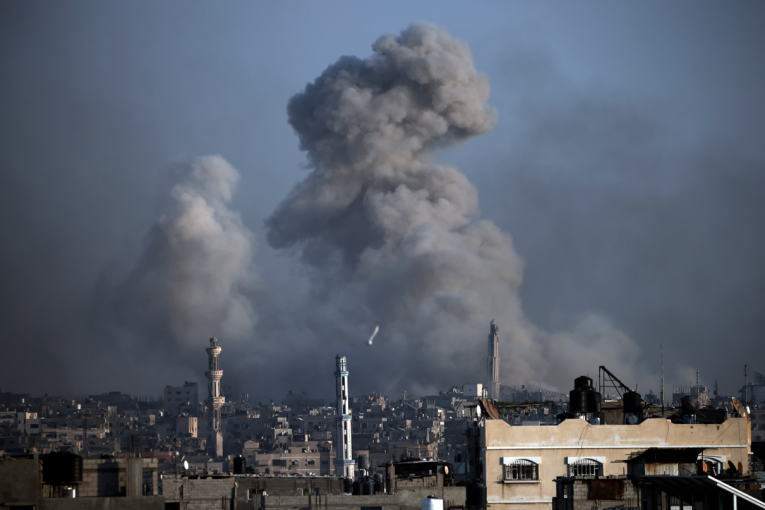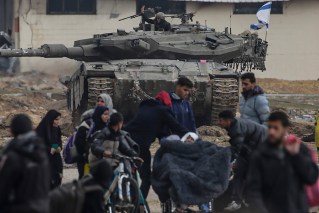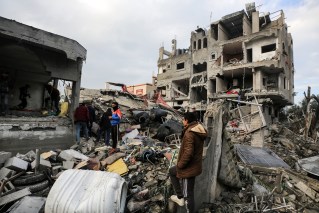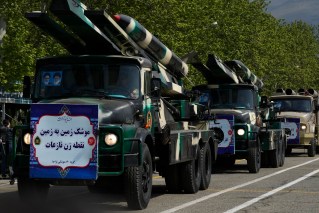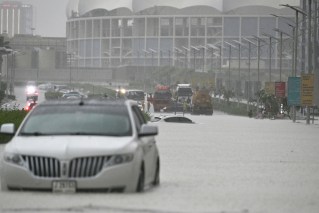Stop Israeli-Palestinian violence: Payne

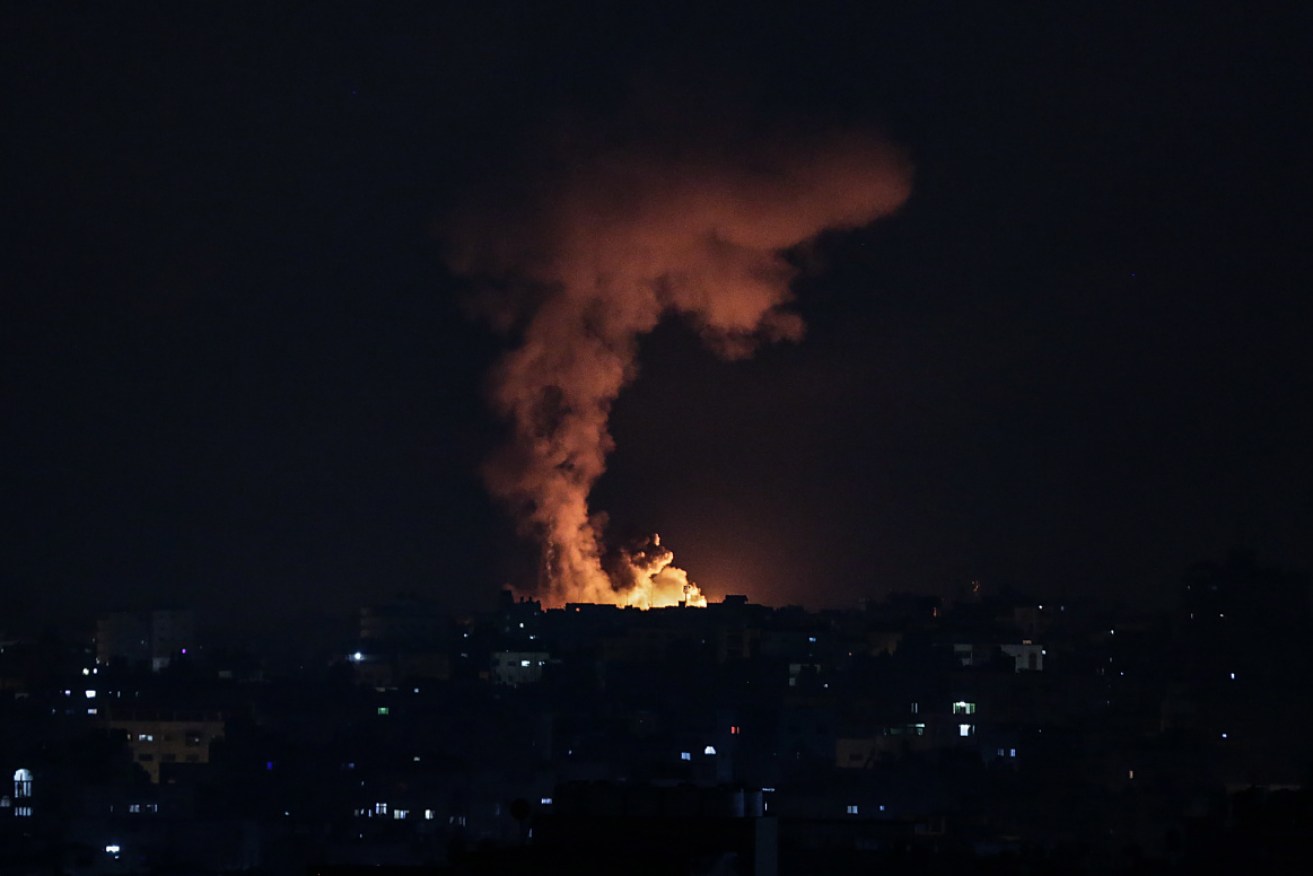
The sound of explosions have echoed across northern and eastern parts of Gaza. Photo: EPA
Australia’s Foreign Minister is calling for an end to the violence in the Gaza Strip as fears of war take hold.
More than 100 people have been killed in the worst violence between Israelis and Palestinians in several years.
Marise Payne said the government was deeply concerned about escalating violence in Israel, Gaza and the West Bank.
“We’ve unequivocally called on all leaders to take immediate steps to halt violence, to maintain restraint, and to restore calm,” Senator Payne said while in Washington on Friday.
“Our strong view is that violence is no solution,” Senator Payne said.
“Whether they are rocket attacks or indiscriminate acts that fuel the cycle of violence and bloodshed, they are also never justified.
“We have urged all parties to refrain from violent or provocative acts, calling for a halt to any actions that increase tensions.”
She said Australia would play an active role if discussions were held by the United Nations, which fears the situation could explode into full-scale war.
Ms Payne’s pleas came on a day that saw Israel fire artillery and mount more air strikes against Palestinian militants in the Gaza Strip amid constant rocket fire deep into Israel’s commercial centre.
As hostilities entered their fifth day, with no sign of abating, the Israeli military said in a statement shortly after midnight that air and ground forces were attacking the Hamas-run enclave. Rocket barrages from Gaza swiftly followed.
Tweet from @IDF
Although the statement gave no further details, Israeli military affairs correspondents who are briefed regularly by the armed forces said it was not a ground invasion, and troops were firing artillery from Israel’s side of the border.
Residents of northern Gaza, near the Israeli frontier, said they had seen no sign of Israeli ground forces inside the enclave but reported heavy artillery fire and dozens of air strikes.
Israeli Prime Minister Benjamin Netanyahu said on Thursday the campaign “will take more time”. Israeli officials said Hamas, Gaza’s most powerful militant group, must be dealt a strong deterring blow before any ceasefire.
The sound of explosions echoed across northern and eastern parts of Gaza. Witnesses said many families living in areas near the border quit their homes, some seeking shelter at United Nations-run schools.
Violence also spread to mixed communities of Jews and Arabs in Israel. Synagogues were attacked and fighting broke out on the streets of some towns, prompting Israel’s president to warn of civil war.
At least 109 people were killed in Gaza, including 29 children, in the previous four days, Palestinian medical officials said. On Thursday alone, 52 Palestinians were killed in the enclave, the highest single-day figure since Monday.
Seven people were killed in Israel: a soldier patrolling the Gaza border, five Israeli civilians, including two children, and an Indian worker, Israeli authorities said.
Worried about the region’s worst hostilities in years, the United States was sending in an envoy, Hady Amr.
Truce efforts by Egypt, Qatar and the United Nations had yet to deliver a sign of progress.
US President Joe Biden called on Thursday for a de-escalation, saying he wanted to see a significant reduction in rocket attacks.
Militants fired rocket salvos at Tel Aviv and surrounding towns on Thursday, with the Iron Dome anti-missile system intercepting many of them. Communities near the Gaza border and the southern city of Beersheba were also targeted.
Five Israelis were wounded by a rocket that hit a building near Tel Aviv on Thursday.
Mr Netanyahu said Israel has struck close to 1000 militant targets in the territory.
Diplomats said the United States, a close ally of Israel, objected to a request by China, Norway and Tunisia for a public, virtual meeting of the UN Security Council on Friday to discuss the violence.
US Secretary of State Antony Blinken told reporters such a meeting would be better next week to allow time for diplomacy.
Israel launched its offensive after Hamas fired rockets at Jerusalem and Tel Aviv in retaliation for Israeli police clashes with Palestinians near al-Aqsa mosque in East Jerusalem during the Muslim fasting month of Ramadan.
Brigadier-General Hidai Zilberman, the Israeli military’s chief spokesman, said attacks on militants’ rocket production and launching sites were “disrupting Hamas’ activities”, but still not to the point of stopping the barrages.
He said between 80 and 90 militants had been killed in Israeli attacks.
Mr Zilberman said Israel was “building up forces on the Gaza border”, a deployment that raised speculation about a possible ground invasion, a move that would recall similar incursions during Israel-Gaza wars in 2014 and in 2009.
Israeli military affairs correspondents, have said however that a major ground incursion is unlikely, citing high casualties among the risks.
Hamas armed wing spokesman Abu Ubaida responded with defiance: “Mass up as you wish, from the sea, land and sky. We have prepared for your kinds of deaths that would make you curse yourselves.”
About 1750 rockets have been fired at Israel, of which 300 fell short in the Gaza Strip, the Israeli military said.
Mr Netanyahu’s chances to remain in power after an inconclusive March election appeared to improve significantly after his main rival, centrist Yair Lapid, suffered a major setback in efforts to form a government.
-with AAP
